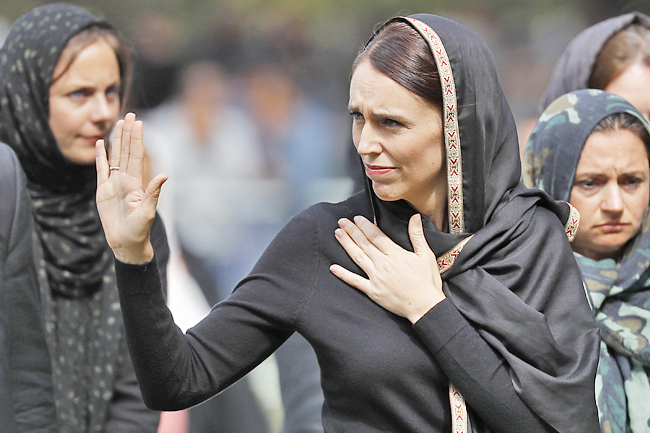WELLINGTON, NEW ZEALAND (AP) – New Zealand Prime Minister Jacinda Ardern (AP, pic below), who was praised around the world for her handling of the nation’s worst mass shooting and the early stages of the coronavirus pandemic, said yesterday she was leaving office.
Ardern was facing mounting political pressures at home and a level of vitriol from some that hadn’t been experienced by previous New Zealand leaders.
Still, her announcement came as a shock to people throughout the nation of five million people.
Fighting back tears, Ardern told reporters in Napier that February 7 would be her last day as prime minister. “I am entering now my sixth year in office, and for each of those years, I have given my absolute all,” she said.
Ardern became an inspiration to women around the world after first winning the top job in 2017 at the relatively young age of 37. She seemed to herald a new generation of leadership – she was on the verge of being a millennial, had spun some records as a part-time DJ, and wasn’t married like most politicians.
In 2018, she became just the second world leader to give birth while holding office. Later that year, she brought her infant daughter to the floor of the United Nations General Assembly in New York.

In March 2019, Ardern faced one of the darkest days in New Zealand’s history when a white supremacist gunman stormed two mosques in Christchurch and killed 51 people.
She was widely praised for the way she empathised with the survivors and New Zealand’s Muslim community in the aftermath.
Less than nine months later, she faced another tragedy when 22 tourists and guides were killed when the White Island volcano erupted.
Ardern was lauded globally for her country’s initial handling of the coronavirus pandemic after New Zealand managed to stop the virus at its borders for months. But she was forced to abandon that zero-tolerance strategy as more contagious variants spread and vaccines became widely available.
Ardern had been facing tough re-election prospects. Her centre-left Labour Party won re-election in 2020 with a landslide of historic proportions, but recent polls have put her party behind its conservative rivals. Ardern said the role required having a reserve to face the unexpected.
“But I am not leaving because it was hard. Had that been the case I probably would have departed two months into the job,” she said.
“I am leaving because with such a privileged role comes responsibility. The responsibility to know when you are the right person to lead, and also, when you are not.”
She said her time in office had been fulfilling but challenging.
“I know what this job takes, and I know that I no longer have enough in the tank to do it justice. It is that simple,” she said.
Ardern announced that New Zealand’s 2023 general elections would be held on October 14, and that she would remain a lawmaker until then. It’s unclear who will take over as prime minister until the election.
Deputy Prime Minister Grant Robertson announced that he won’t contest the leadership of the Labour Party, throwing the competition open.





